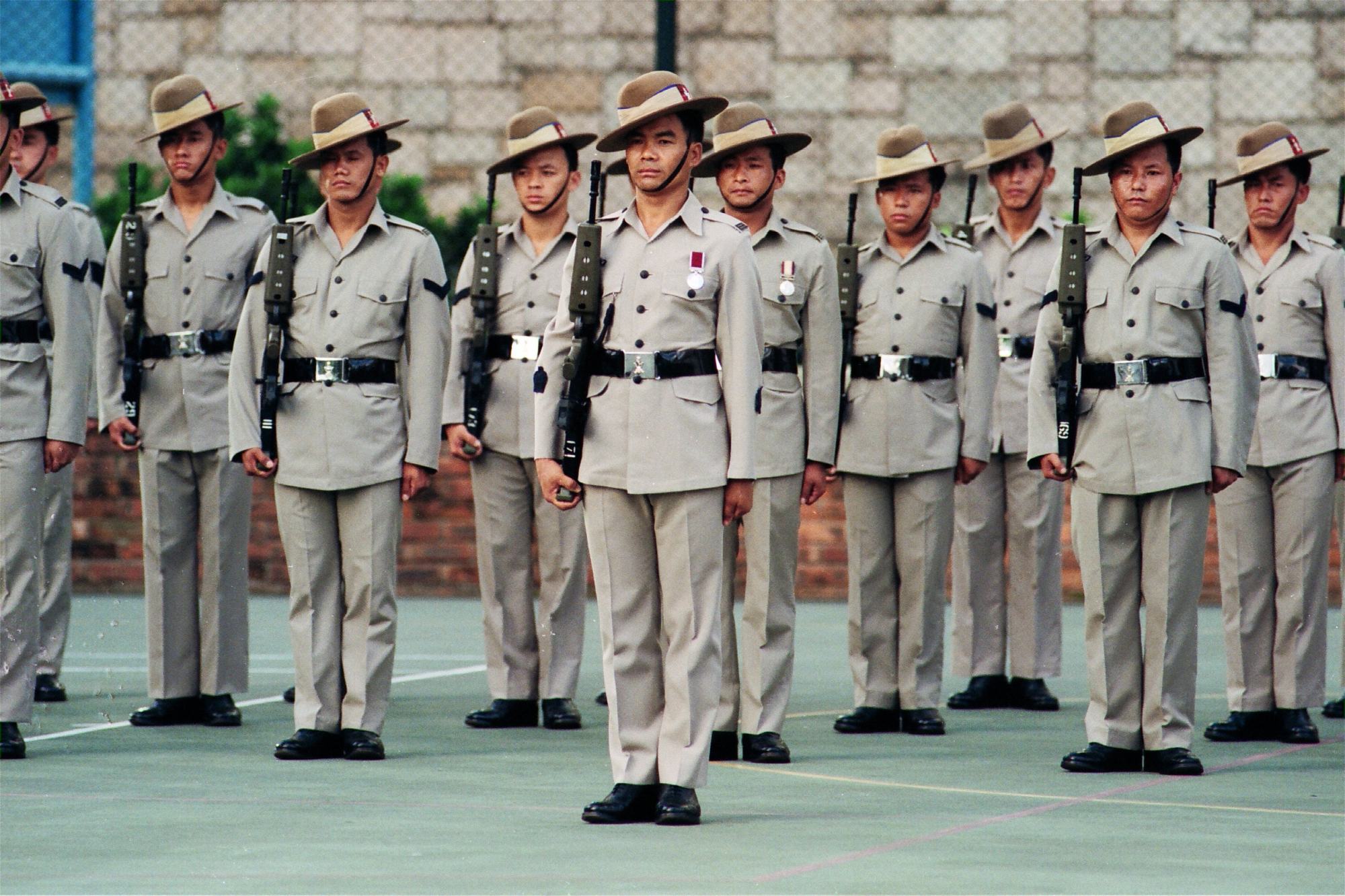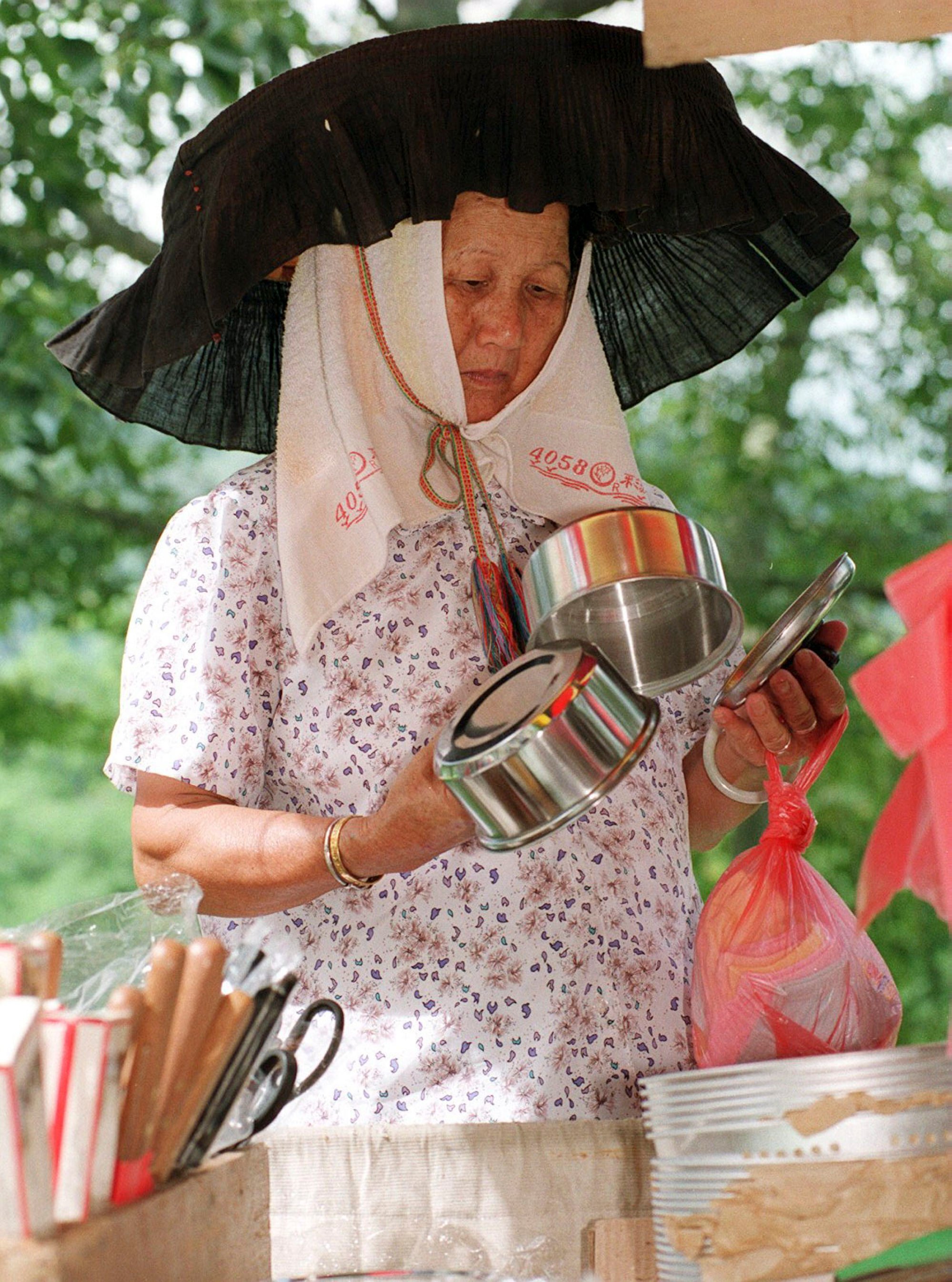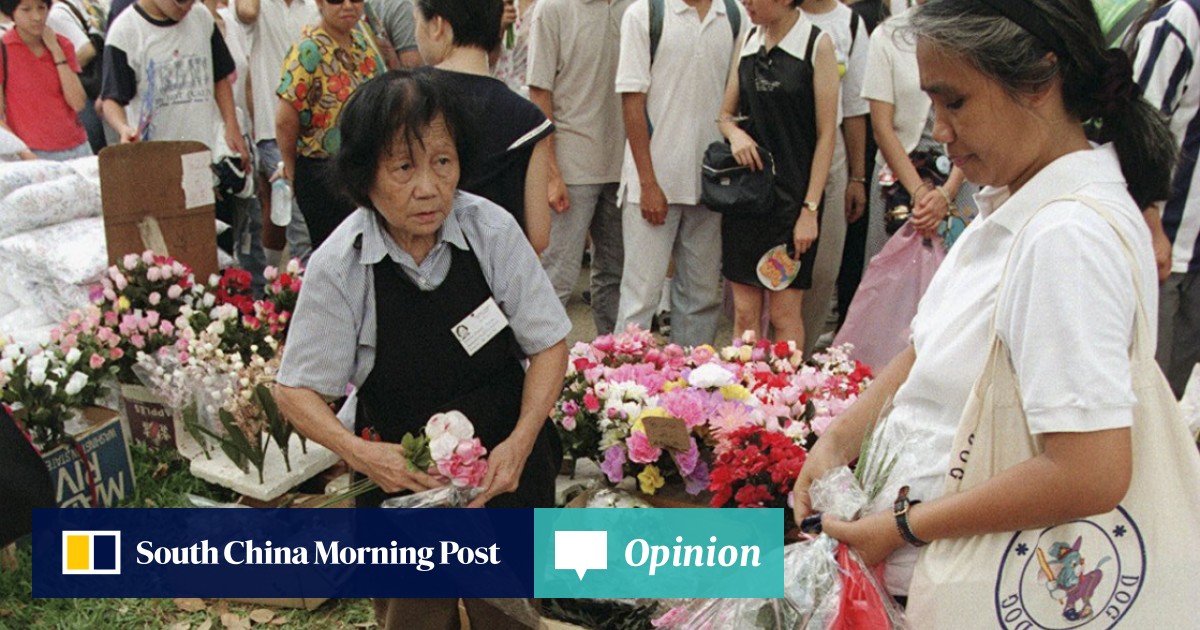Stick around in one place for long enough and unexpected aspects of one’s own personal life experiences merge into local historical memory, and pique the interest of a younger generation.
This happened recently, when a young Hong Kong Chinese friend who lives elsewhere in the New Territories came to stay with us at Shek Kong.
Along with curious discussions of what is locally termed “Army Camp Food” – the kind of Indian-influenced fare that used to be available from local military canteens – talk also turned to the long ago vanished Friday market at Shek Kong Village, which he had, of course, never seen for himself.
In those years, Shek Kong was remote from urban Hong Kong; various welfare provisions, such as the Friday market, helped alleviate the social isolation many service wives – especially those with young children – experienced in their daily lives.
Allowing various retail outlets to set up stalls around the married quarters for a few hours made for a morning out, and allowed those whose personal circumstances made a backstreet Kowloon shopping expedition nigh on impossible to nevertheless make a few purchases to brighten up their married quarters, source some presents for friends and family back home in Britain, and also engage with the local economy.

Many hawkers represented the last echoes of Hong Kong’s once-thriving light industrial sector. Garment industry samples and export order seconds were a speciality – the Shek Kong Friday market was somewhere where one simply browsed among the piled-high assortment in confident expectation of anything and nothing.
Factory outlets sold bedsheets, pillow cases, table linen, and hotel-grade towels (sometimes with a far-off hotel chain’s name and logo woven into the fabric), porcelain vases and crockery, silk lampshades, stainless-steel or enamel kitchenware, baby and infant clothes, brass lamp stands and ornamental statuary, picture frames – anything with a proven demand could be found at some stage.

Vendors were expected to offer decent discounts in return for being given a slot – and, naturally, it was in their commercial interest to do so.
British service wives – and military personnel in general – were mostly conservative folk with broadly similar tastes, habits and decorative interests. Shops that closely catered to what this demographic wanted, and combined attractive prices with friendly, personalised service – not a general Hong Kong retail hallmark in those years, it must be admitted, especially when European customers were concerned – were onto a winner.
Word-of-mouth recommendations paid better dividends than any advertising. Nevertheless, some well-established businesses that were also regular Friday market attendees did buy advertising space in locally produced British Garrison magazines such as The Junk, and offered guaranteed discounts when an advertisement clipped from one of these publications was produced.
How post-war Hong Kong farmer support scheme had a lasting impact in Nepal
How post-war Hong Kong farmer support scheme had a lasting impact in Nepal
All that is long gone – the young friend who expressed fascinated interest in these long-ago events was only an infant when the Friday market began to close down, just before the last British service families left Shek Kong.
The 1997 handover – or whatever that seismic historical event must now be labelled according to contemporary political correctness – cannot be recollected with any clarity by anyone under the age of 30.
Along with fond personal memories of the Friday market, other aspects of New Territories life during those years, that could be described from my own experience, seemed as remote to his own lived experience as were the “old Hong Kong” stories told to me by various elderly friends long ago.
